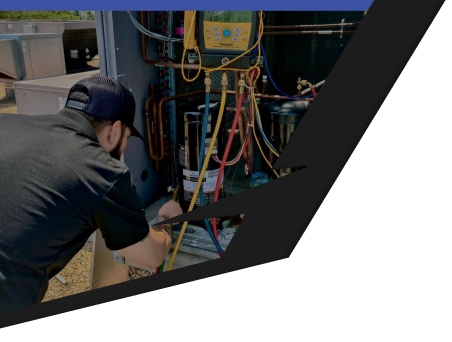Heating and cooling your home or commercial business is extremely important. You need to make sure you are investing in the right system for both your needs and your budget.
There are many different kinds of HVAC systems, but they generally fall into one of two categories: commercial or residential. Knowing the difference between Commercial and Residential HVAC Systems is critical to making the right choice.
In this article we’ll be discussing both HVAC systems in detail to explain why they are not the same thing.
Commercial HVAC Systems
Commercial HVAC systems are designed for use in commercial buildings. Large shopping malls and office complexes have them, as do offices, hotels and museums.
There are different systems for different types of buildings, but they generally have two basic functions: heating and cooling. For the most part, they are similar to residential HVAC systems in that they usually use one or more heating and one or more cooling sources to maintain a specific temperature.
This typically makes the use of split systems very practical and easy. The HVAC systems are often part of a system that controls the temperature in the building.
In fact, most commercial systems are integrated with the building management system, if it is in use.
Residential HVAC Systems
Residential HVAC systems include things such as the space heater you keep in the living room during the cold months, and the air conditioner you keep running year round.
Sometimes homes even have a system that has two heaters, one in the basement, and one in the upstairs. Some HVAC systems are more centralized, which is the most popular type by a far margin.
These types of systems are typically designed to be used in a single dwelling.
Why Do They Look Different?
Commercial HVAC systems have more parts than residential units. This means that you need to be more careful when you install one, as you want it to run properly when it is required.
This means that your system will last longer and require less maintenance in the long run, all of which will save you money.
Residential systems are normally a centralized unit, offering more economical and long lasting benefits for the homeowner.
What Are the Differences Between Them?
Residential and commercial HVAC systems are different, but for the most part they are the same. Most people are unaware of this, so let’s go over it quickly.
The main differences are that commercial HVAC systems tend to be quite large depending on the application, have more complex systems, and require more maintenance.
Most homes have their own private HVAC system. A private system uses a self-contained unit with separate components. This system, much like your office AC system, may have heat, air conditioning, and a dehumidifier.
When it’s time to switch your system on, it will all work together automatically.
Size of the Building
It’s important to know that what counts is the size of the building. A commercial HVAC system is designed to provide all the heating and cooling the building needs.
Even a small commercial space requires a commercial HVAC system. In a residential HVAC system, the size of the home dictates what is needed.
For example, a home in a suburban area with a large backyard needs a different HVAC system than a home in a remote area where no one will be in the backyard. This is an important distinction to know before you buy a system.
This is why you must first know the differences between the types of systems.
Climate
If you’re unfamiliar with air quality and climate zones, you’re in the right place. Let’s start with the basics.
Temperature control is a job all of our HVAC systems do. There are two factors that determine the temperature of air in your home or office: the heat transfer (or convection) of the air and the ventilation of the space.
Convection occurs when the air changes direction, resulting in it flowing from the warmer room to the cooler room. By default, the warmer side of the room is cooler than the cooler side, and that difference causes the air to be hot in one area of the room and cool in another.
Ventilation is the action of moving the air from one area to another, either by blowing air through a system of fans or blowing the air out of the vents.
Budget
One of the biggest things to consider when looking into HVAC equipment is how much you are willing to spend on it. A commercial HVAC system is often more expensive than a residential system.
The reason for this is because a commercial building may have special equipment that makes it more complicated to operate. In addition, the equipment inside of a commercial building tends to be a lot larger than the equipment used in a residential building.
Some commercial buildings require heating, cooling and ventilation all in one system. The size and type of the building is also important to consider.
If you have a larger commercial building, then the amount of HVAC equipment needed to run the building will be a lot more expensive than if you are renting a smaller commercial property.
Always be sure to factor any type of HVAC system into your budget so there won’t be any surprises.
Why Cool Experts AC in Irving, TX Can Take Care of Any Installation or Problems With Your Residential or Commercial HVAC System
Thanks for reading our article about What Is The Difference Between Commercial And Residential HVAC Systems. Here in Irving, Texas Cool Experts AC has the knowledge and the certified experts to handle any HVAC needs you may have.
Our family-owned business prioritizes the customer’s needs first. We proudly serve a wide area throughout Texas. Our customers have grown to know and trust our expertise and we are honored to have that sort of trust with them.
Contact Cool Experts AC in Irving, TX today to learn more.

